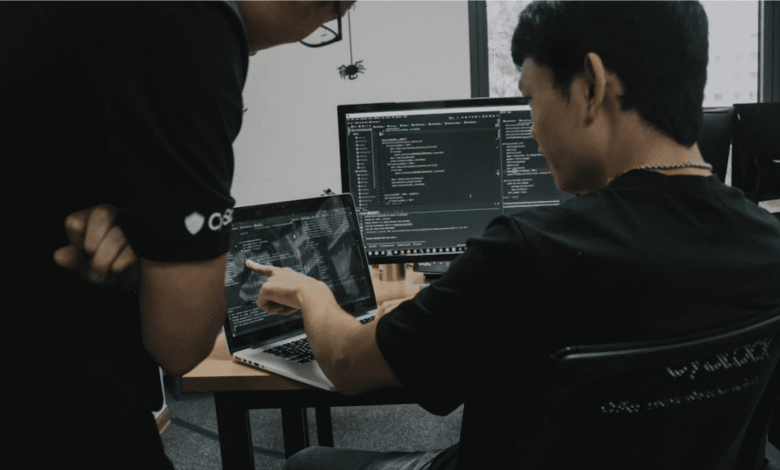
The emergence of artificial intelligence (AI) has begun in a new era of creating business, with the AI platforms of the Foundation at the forefront of this technological revolution. These advanced systems not only update the current operations; They create unprecedented opportunities for growth and efficiency. By harnessing the strength of artificial intelligence, companies can benefit from data, automate complex tasks, and allocate their services according to the advanced market needs. The integration of artificial intelligence into the operations of institutions transforms the scene through industries, which provides expansion and unprecedented movement.
If you are looking for the AI platform for the institution that enhances digital transformation through smart search, the Ba Insight platform is a strong choice. the AI Enterprise platform The cornerstone of the digital transformation strategies has become. Its ability to analyze large quantities of data in the actual time allows companies to obtain visions and determine unacceptable trends. With these ideas, companies can make decisions that depend on data that they pay before competitors and better meet customer requirements.
The role of the Foundation is artificial intelligence in the transformation of the industry
AI’s manufacturing power has caused a major impact on various industries, with health care, financing and manufacturing that leads this charge. In health care, artificial intelligence platforms help in diagnostic processes, customize treatment, and manage patient data, revolutionize patient care model. Meanwhile, the financial sector is used by Amnesty International to detect fraud, evaluating risk and automated trading, ensuring increased security and efficiency in financial transactions.
In manufacturing, the predictive maintenance of artificial intelligence and the improvement of production lines leads to a decrease in stopping time and increased productivity. The possibilities of analysis in the actual time provided by the artificial intelligence platforms for manufacturers to expect the failure of equipment and inefficiency in the process, significantly reduce costs and enhance the quality of the product. Such a predictive ingenuity extends beyond manufacturing, creating smart logistical networks and energy networks that learn and adapt to improve their operations.
Sectors such as retail and marketing also have also adopted Amnesty International to track consumer behavior and allocate their strategies accordingly. By understanding Customer preferencesCompanies can provide custom shopping experiences, target advertising, and maintain a competitive advantage in a crowded market.
Education and public services do not fail. Educational institutions use Amnesty International to provide adaptive educational experiences and automating administrative tasks, while governments apply artificial intelligence in traffic management, environmental monitoring and public safety, which leads to more intelligent and more efficient cities.
Overcoming challenges for successful artificial intelligence adoption in companies
Despite its many benefits, artificial intelligence adoption can be large Corporate challenges. One of the main challenges is to integrate artificial intelligence into the current systems. The old infrastructure may not be equipped to deal with the requirements of artificial intelligence technologies, which requires expensive and time -consuming updates.
The privacy of data and safety is another concern, especially with an increase in scrutiny how companies dealt with customer data. Artificial intelligence systems require huge amounts of data effectively, and ensuring the protection of these data from violations is very important. Companies must create strong security protocols and comply with regulations to maintain confidence and work legally.
The scarcity of skilled professionals in the field of artificial intelligence can be a specific factor. As demand for artificial intelligence grows, companies are struggling to find qualified talent to lead artificial intelligence initiatives. Investing in training and enhancing partnerships with educational institutions can help organizations build the workforce they need to move forward.
Future predict

Companies meeting with executives who analyze future technical strategies, while emphasizing how the Foundation’s AI platform transforms industry dynamics.
The future of the AI is promising, with many directions that indicate the direction of its development. One of these trends is to move towards more than artificial intelligence that can be explained, as decision -making processes of artificial intelligence systems become more transparent and understandable for human users. This transformation is crucial to building confidence and facilitating the broader adoption of artificial intelligence techniques.
Another direction is the progress of natural language treatment (NLP), which will enable machines to understand and respond to the human language. With the improvement of NLP, we can expect artificial intelligence to play a more important role in customer service, content creation, and various forms of communication.
Incorporation of AI Enterprise Ai platforms is a changing game for industries that look forward to prosperity in the digital age. It stimulates innovation, simplifying operations, and opening new ways of growth, which makes them indispensable to any thinking company forward. While we look forward to the future, the potential of artificial intelligence remains vast, promising to derive industries with intelligence and the ability to adapt to overcoming future challenges and seizing emerging opportunities.





